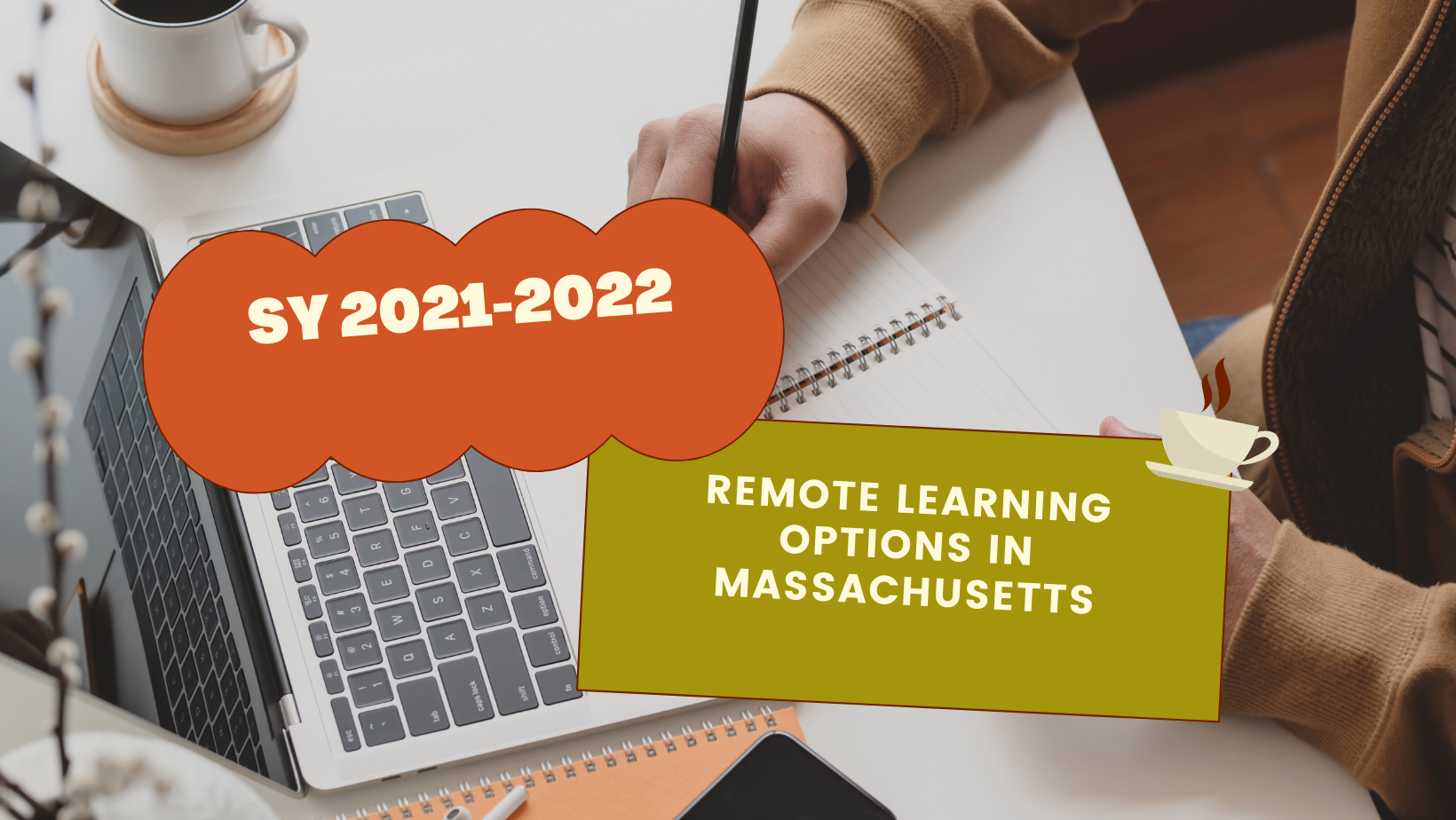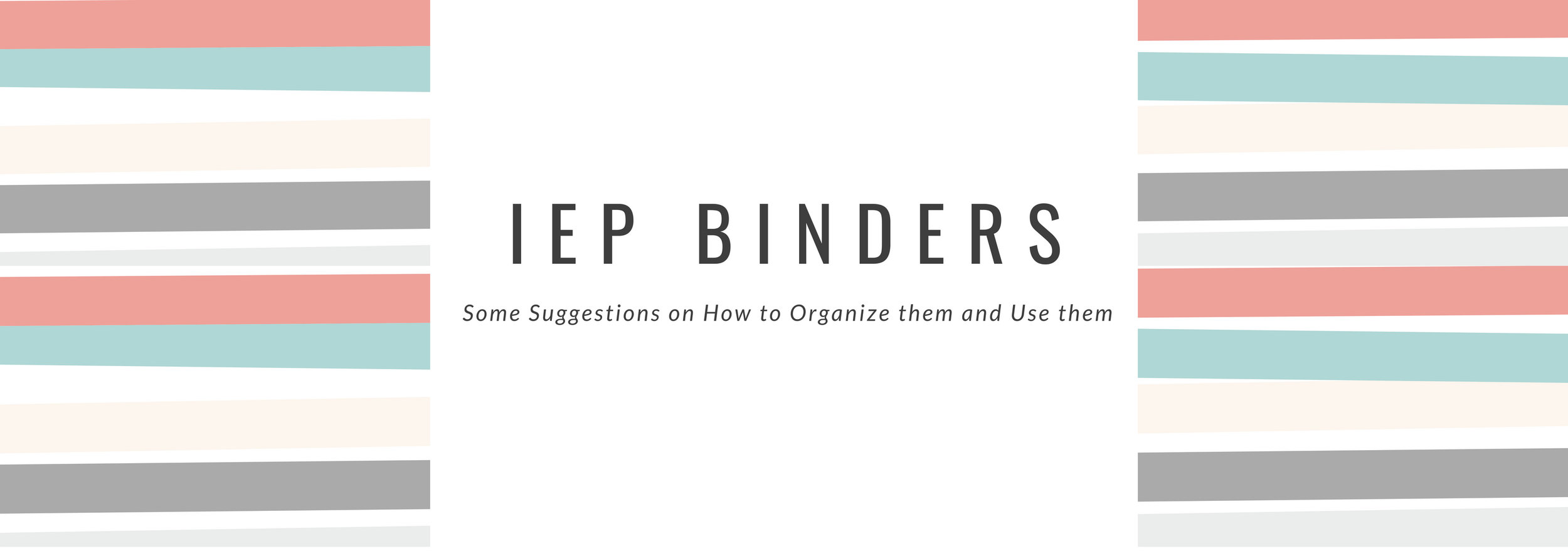Over the years, I have tried several different ways to organize a student’s IEP data and other academic related information. The one tool that always works regardless of the amount of paper I’ve accumulated is a 3-ring binder. It may sound like a lot of work but once you have it set up, you can re-use the binder and its set-up year after year.
What do you to get started:
- 3-ring binder. I usually get a 2 or 3 inch binder but the size depends on how much paperwork you think your student will generate in the year.
- Some tabbed section dividers. I buy a set of 6 dividers, as well as two sets of the 8 dividers.
- A three hole punch, if you don’t have one.
- Some lined post-it notes. I like the medium sized ones but you should use whatever fits your needs best.
First step:
Put the 6 sections dividers into the binder and label them. These are the labels I use:
- Current IEP
- Evaluations
- Communication
- Report cards/Progress Reports
- Behavior/Discipline
- Sample work
- I divide Communication, Report cards/Progress reports, Behavior/Discipline and Sample work into the four school quarters using the section dividers from the two sets of 8 dividers I have already bought.
Second step:
I gather all my paperwork together and sort into each of the sections. I file all documents in reverse chronological order - the most recent document on top. I also hand write in light pencil, bottom right of each document, the date I received/sent the document.
Current IEP
In this section, I file the most current IEP, any meeting notices and my goal tracker sheet. I update the goal tracker sheet each quarter after I've received the progress report.
Evaluations
If you are new to the process the first two documents will be your request for evaluation followed by your consent to evaluate. Again I keep this section in chronological order with the most recent report on top. I sometimes forget what reports say in meetings so I usually create a table of contents for this section and will include a blurb or two of the key points in each report. I do NOT write on these reports. If a blurb is not enough I will put post-it notes with my notes in/on the section that is important.
Communication
In the first week or so of the new school year, I’ll reach out to my student’s classroom teacher and discuss what would be the most efficient way to have consistent communication regarding my student’s successes and difficulties. I have already divided this section into the four academic quarters, so whatever is agreed to, I print out copies of all communications and keep them in this section with the most current one on top.
If I find myself calling the school/teacher/etc. frequently; I will create a phone log and keep track of who I spoke with, the date/time and a summary of the discussion. I would file this phone log in this section too. I would also break the log up into the four academic quarters.
Report cards/Progress Reports
I have already divided this section into the four academic quarters. I file each report card and progress report accordingly in this file. I sometimes will put my goal tracker in this section too just because it related to the progress reports. Either section is appropriate and you need to put it in a section that makes the most sense for you.
I frequently review this section asking myself: What is the data telling me? What data is missing? What doesn't make sense that I need to follow up on.
Behavior/Discipline
My student's disabilities often come hand-in-hand with behavior/discipline issues. I keep a log for each academic period. The log tells me how often the student is escorted and/or restrained. How often the student is out of class, for what reason and what the resolution was of the issue. I also use these logs to help me understand if the student is making effective progress and whether or not the placement is appropriate.
Sample work
I like to either ask the teacher for sample work or I collect papers that are sent home each quarter. I tried to have a couple of pieces of work from each class. I do not collect all bad or all good work. I try to collect work that reflects my student's strengths/weaknesses. This way I can have my own insight into their successes and/or difficulties that I can discuss with their teacher.
Third Step - Optional Step:
Your binder should be individualized to your student and their needs. Here are some other sections and/or pages you could include in your binder....
Medical Section
If your child has a medical issue you should create another section and label it medical. In this section you could include names/address/contact info for each doctor, a list of medications (as well as dosage and what it is for), doctors notes if your child was sick etc
Summary Sheet
This sheet includes the student’s name, dob , grade, teacher’s name and contact info, Aides/Supports/etc. will also be listed here, the Team Chair’s name/contact info
Table of Contents
This sheet is exactly what it sounds like. I create a table of contents that breaks down each section and what documents are in each section.
Have questions or concerns about your child's education? Contact us to discuss further:
E.M. Curran & Associates LLC
10 Tower Office Park
Suite 406
Woburn, MA 01801
Phone: 781-933-1542
Fax: 781-933-1549
ellen@emcurranlegal.com
























